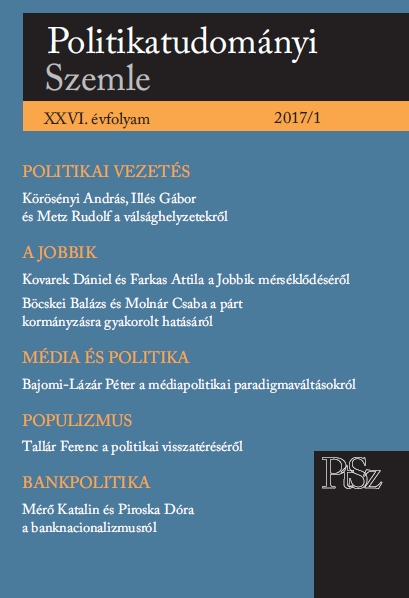Bankunió és banknacionalizmus
Banking union and banking nationalism
The Hungarian case in a Central and Eastern European context
Author(s): Katalin Mérő, Dóra PiroskaSubject(s): Fiscal Politics / Budgeting
Published by: MTA Politikai Tudományi Intézete
Keywords: Banking Union; Central and Eastern Europe; Hungary; banking nationalism; financial nationalism; bank regulation
Summary/Abstract: The purpose of this study is to understand Hungary’s opt out position from the Banking Union (BU). The Banking Union is compulsory for Eurozone member states and optional for non-Eurozone member states. From the Central and Eastern European (CEE) region only Romania and Bulgaria decided to join. Firstly, an attempt is made to explain the different positions of CEE governments based on structural characteristics of the CEE banking sectors, but no substantial difference is found between the opt-in and opt-out countries’ banking sectors. Secondly, we look at the role of state’s capacity to maintain a stable banking sector, and fi nd that state’s capacity is a necessary condition for opting out. Finally, through a detailed Hungarian case study we argue that the Hungarian government opted out because its government’s policy preference of banking nationalism confl icts with the BU’s ideals. With regard to the Polish and Czech governments’ decision, the existence of banking nationalist policy preferences is indicated but not proved.
Journal: Politikatudományi Szemle
- Issue Year: XXVI/2017
- Issue No: 1
- Page Range: 135-160
- Page Count: 26
- Language: Hungarian

